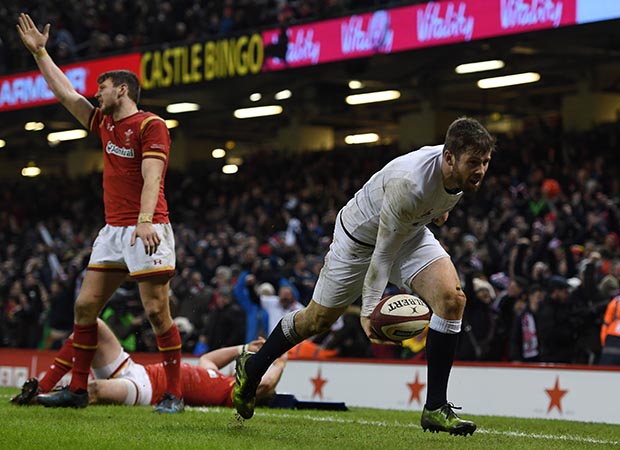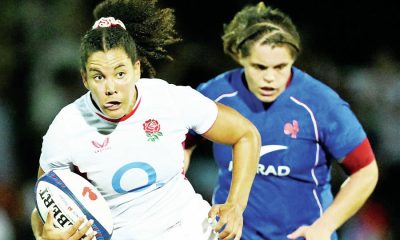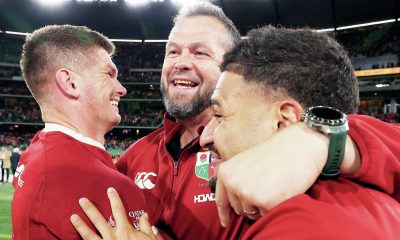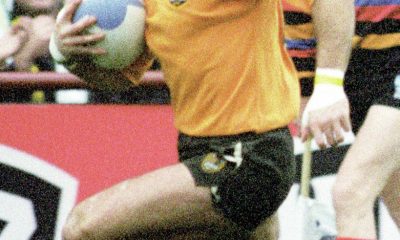
 With the first break in the Six Nations upon us, it gives the chance to look back at what is the most exciting contest we have had for a while.
With the first break in the Six Nations upon us, it gives the chance to look back at what is the most exciting contest we have had for a while.
Ireland‘s unexpected loss to Scotland in the first week certainly galvanised them into action last week as they ripped poor Italy apart with a display of attacking rugby that set the tone for the whole weekend.
The other two games, Wales vs England and France vs Scotland could have gone either way right up to the dying seconds – but ultimately the stronger sides prevailed.
French power play sucked the energy out of the lighter Scottish pack and took its toll on their first choice players. Unfortunately for Scotland, having the smallest player base in the Six Nations means they are not blessed with great strength in depth, and that was exposed in the last quarter of the game.
For Wales, Jonathan Davies’ loose kick down field, which kept the game alive, will probably haunt him for the rest of his life, creating as it did, the opportunity for England to launch one final counter attack.
The pressure England had applied in the last quarter had tired the Welsh and as a result, the kick had no chasers allowing England to counter attack against a fractured and disorganised defence. It remains a truth in rugby that any kick in field is only as good as its chasers, as they restrict the opportunity for counter attacks or territorial gain.
Many people have criticised Alex Cuthbert for his missed tackle but I think that is unfair. The majority of the Welsh team were concentrated on the opposite side of the pitch and failed to chase Davies’ kick or cover across after Ford had caught the ball and ran open. This left Cuthbert to cover about a
15 metre area, with Daly running at full speed onto a perfectly timed pass from Owen Farrell.
With England’s escape and continued rumble on towards a second Grand Slam, the plaudits for Eddie Jones are becoming even more ridiculous with the latest an attempt to credit him with inventing something that has always been a part of the game – ‘tactical periodisation’. It is an odd phrase used to explain what was always called the ebb and flow of the game, with different tactics coached for different periods of play.
Reading many of articles attributing Jones’ success to copying either Jose Mourinho or Alex Ferguson’s use of a system said to be the invention of Portuguese lecturer Vitor Frade, you could be forgiven for thinking it is something new but I don’t think it is. It may just be a coincidence, but I remember training for different scenarios occurring in the game and I am pretty sure virtually every club in the land does the same.
Every training session has a time when the opposition have the ball and you practise your defence and its different components. How to tackle and turnover the ball; how the backs align at the opposition set-piece while the forwards try to compete for or disrupt the quality of ball the opposition get.
At the breakdowns, how quickly players can realign in broken field situations when the opposition recycle the ball. It has always been a priority to ‘up your game’ when the opposition have the ball regardless of where you are on the pitch or how long you’ve been playing.
Then there is the time when you have the ball, honing your attack moves so they become instinctive with the team acting as a single unit. Forwards delivering clean quick ball to enable the backs to utilise the optimum amount of space they have at set-piece plays or against a disorganised defence.
Back in the dark ages when I played, players were expected to play for the entire game as substitutes were only allowed for injury, so training (particularly with England) was always a hard physical slog with the goal of increasing fitness and endurance.
As amateurs, international weeks were different as we met on a Wednesday evening after work, had a semi-opposed team run for an hour or so then the backs would leave while the forwards had a fully contested session against the ‘A’ team pack.
Thursday was a semi-opposed team run and Friday, a 15-minute run through of some moves unopposed.
With the introduction of the World Cup, training became more structured and as internationals, we were expected to follow a routine with a programme for the year including the off-season.
Just as now, the real physical work took place at the start of the week, with a rest day on Wednesday, semi-opposed session on Thursday, a light run on Friday and the game Saturday – but unlike now, all this was whilst working.
The idea was to increase match fitness and technical skill levels to increase the ability to wear down the opposition and dominate the last quarter of the match and score the winning points which if you look at the results was exactly what happened.
It seems to me that all Eddie has done is go back to the past in the hope that his team can copy what was achieved by England in 1991 and 1992.
































You must be logged in to post a comment Login